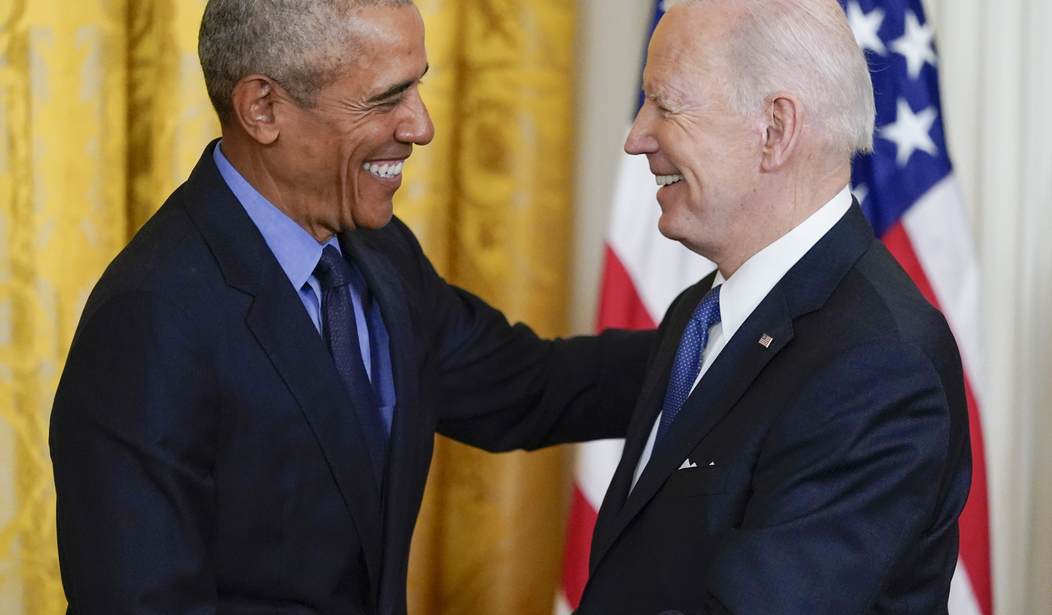It’s been said that the Biden-Harris administration is little more than a retread of the Obama-Biden years, something of an attempt to restore and reinforce the heavy-handed policies enacted by our 44th president and his blundering VP-turned-commander in chief. Whether Biden is aware of these claims or not, he’s doing little to make his first term in the Oval Office look like anything but a third term for Obama and his legacy of abusing executive power.
More evidence of this arose on Wednesday when the Biden Department of Labor announced that it would begin work to enact a rule that was first tried by none other than Barack Obama.
Dealing with overtime pay eligibility, the Department of Labor announced a proposed rule which would grant overtime pay to “most salaried workers earning less than $1,059 per week, about $55,000 per year.” The proposed rule, according to the Labor Department, would mean 3.6 million American workers would suddenly get time and a half for working more than 40 hours each week.
Back when Biden was VP, the Obama-Biden administration mounted an attempt at implementing such a rule, but one that set the threshold at incomes just above $47,000. Back then, legal challenges were swift. More than 20 states joined a lawsuit led by Nevada’s then-Attorney General Adam Laxalt challenging the rule and arguing that it “would burden private and public sectors by straining budgets and forcing layoffs or cuts in working hours,” as AP reported in September 2016.
By November 2016, just days before the overtime rule was set to take effect, a federal judge blocked it from being implemented. The Labor Department appealed the preliminary injunction to the Fifth Circuit Court of Appeals where Laxalt and other plaintiffs fighting against the rule sought summary judgment. The judge granted plaintiffs’ motion on claims that the Obama-Biden Labor Department had exceeded its rulemaking authority, and, subsequently, the Labor Department ended its appeal thereby quitting its attempts to implement the rule.
Recommended
But now, just a few years later, the Biden administration is seeking to revive the policy previously killed off in federal court after it was decided that the Department of Labor doesn’t have the authority to implement such a sweeping policy.
Current Acting Labor Secretary Julie Su said Biden’s zombie rule was based on “extensive outreach to employers, workers, unions and other stakeholders” and more than 25 “listening sessions with more than 2,000 participants,” but the same significant issues still exist with the rule, just as there were when President Obama first tried to use the heavy hand of federal bureaucracy to dictate private employers’ business decisions.
Luke Wake, an attorney at the Pacific Legal Foundation (PLF), noted that, “as Justice Kavanaugh recently observed, the Department of Labor has no authority to dictate these salary level rules. Only Congress has the power to make law and Congress has never authorized FOL to impose minimum salary requirements,” Wake emphasized. “DOL will be hard pressed to defend this new rule.”
As with the first Obama administration’s run at such a rule, the Biden administration already faces legal opposition. PLF has a client, Robert Mayfield, who Wake says “is already challenging DOL’s authority” in the matter, arguing the zombie rule “would violate separation of powers.”
In addition to the dubious constitutionality of the Labor Department’s proposed rule, there’s also the real-world havoc such a policy would bring to an economy that’s already in the doldrums.
According to Job Creators Network President and CEO Alfredo Ortiz, Biden’s new overtime rule "hurts small businesses and workers. It increases payroll costs on small businesses at the worst possible time as they contend with Bidenflation and a credit crunch. And it hurts millions of salaried employees, often middle managers, by preventing them from working the hours needed to get the job done and climb the corporate ladder,” Ortiz explained.
Due to the rule, businesses — especially small businesses — are likely to take action to prevent their employees from triggering the new overtime costs and so “be forced to demote them back to hourly wage earners, reversing their hard-earned career progression,” added Ortiz. “This rule is just the latest front in the Biden administration’s war on small businesses and American workers.”
So, the proposed rule is bad policy which would further harm an economy that Biden’s already sent spiraling. Beyond that, it’s a policy that the Department of Labor (or the executive branch in general) does not have the authority to enact. And lastly, it’s just a stale leftover from the Obama-Biden administration that’s being resurrected after being killed off once before by the courts in some weird attempt to finish the job the Obama administration started.
Despite being an attempt to make Obama’s third term happen, it’s also entirely on-brand for Biden to pursue a policy that’s likely to be struck down by the courts. From the eviction moratorium to the vaccine mandate and student loans to emissions rules, President Biden has not found an unconstitutional overreach he didn’t try to enact.
In a rare potential bright side to all this executive branch overreach, it seems likely that the Supreme Court’s looming review of Chevron deference could drop a veritable nuke on the administrative state and the leeway it has enjoyed.
The legal doctrine has allowed bureaucrats at federal agencies to read between the lines of non-specific laws, or pry the lines even wider than it seems the legislative branch may have intended, to fill in ambiguities in a given statute and then receive deference from the courts based on an agency's interpretation of a law.
But the high court’s consideration of Loper Bright Enterprises vs. Raimondo could mean the ongoing Obama-Biden legacy of using executive power to achieve goals — ones Americans’ elected representatives in Congress would never assent to — finally comes to an end, thanks in no small part to their abuse of such deference.

























